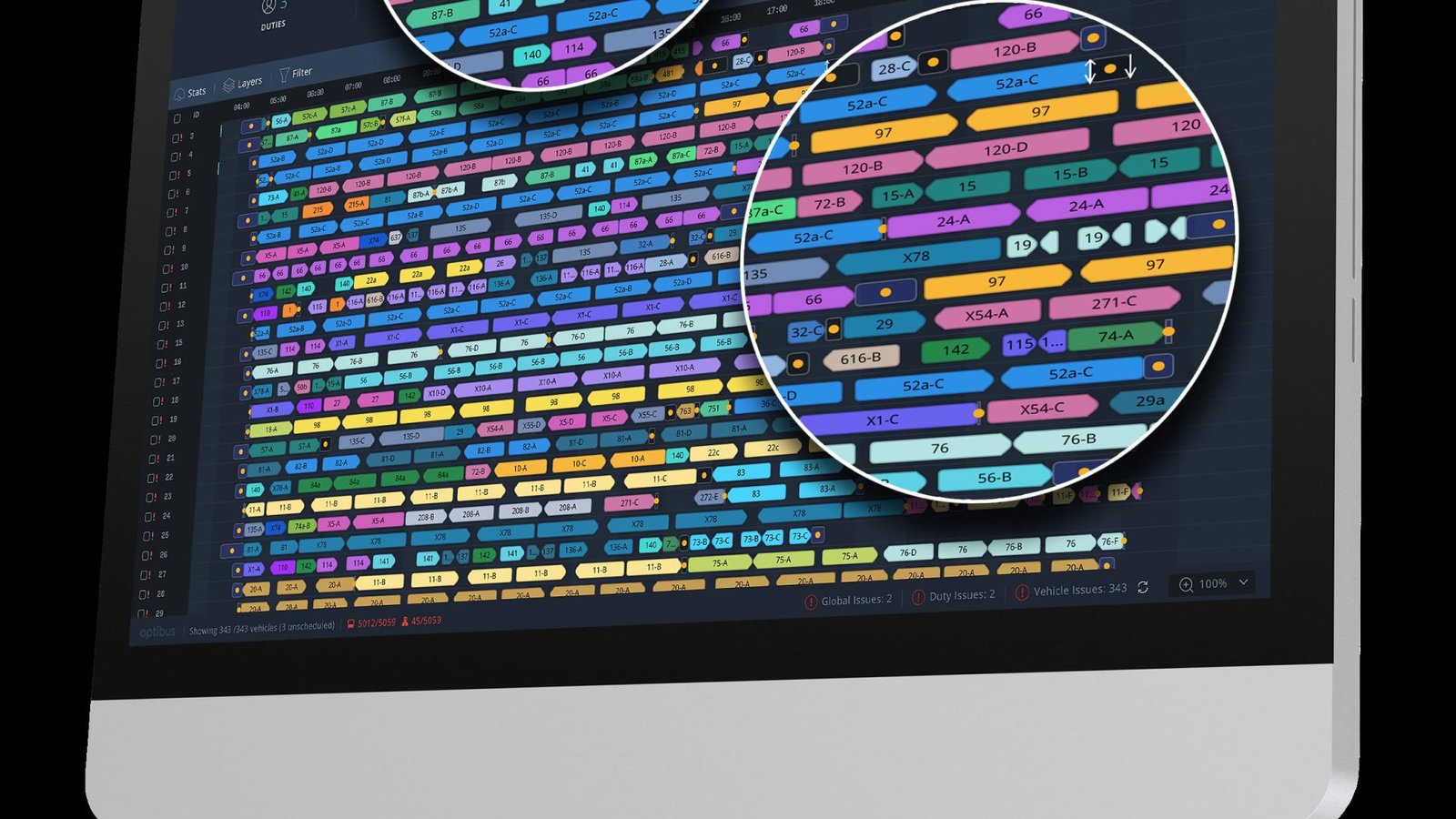AI Research
Russell’s Basi: Business intelligence is the most prized commodity in a land of confusion

Suki Basi, managing director at Russell Group, sets the scene for why geopolitical instability is now the top concern for corporate risk managers – and what can be done to manage it.
It was once said that there are decades where nothing happens, and there are weeks where decades happen. We are living in a turbulent era where geopolitical friends and foes alike are struggling to triangulate their economic needs, often in the face of conflicting value systems, where new and dissolving alliances are creating new supply chains.
In a world in which commodities flow across global shipping and aviation trade routes in greater volumes, it turns out that the biggest commodity of all is business intelligence.
What an astonishing year this has turned out to be! It has just been one thing after another. Five years ago, the global economy came out of the other side of a global pandemic in poor shape, though it could have been much worse, only to sleepwalk into the Russia/Ukraine crisis.
That was only a few short years ago andhere we are in 2025, watching events unfold around the world, with increasing incredulity. Conflicts are springing up across the globe from the Israel-Hamas war, to rising tensions between Israel, Iran and USA and a civil war in Sudan.
All of these are taking place against a backdrop of mounting political unrest in rich and poor nations, straddling class, education and culture.
Geopolitical instability is viewed as the number one major concern for corporate risk managers, highlighting the volatile nature of the last few months, according to a survey run earlier this summer by my company’s trade threat intelligence team.
The survey, titled “Quantifying the Need for Connected Risk Transfer”, surveyed 33 members of the Russell Working Group, which comprises risk managers representing FTSE 100 and 250 companies.
69% of respondents choose geopolitical risk as a major concern, out of a list that included cyber/digital, supply chain disruption, climate/weather, business interruption (non-damage) and business interruption (damage). Similarly, when asked to rank emerging risks, geopolitical instability and trade uncertainty dominated the list, being ranked one and two respectively.
Other findings in the report include the widespread use of scenario analysis requiring business intelligence in organisations and the increasing desire of corporates to have their risks transferred, with up to 50% of respondents wanting between 25% to 50% of their losses transferred. Geopolitical risk is officially the number one risk of concern for corporate risk managers.
A year ago, geopolitical risk would not have been considered a major risk of concern by many corporates. Yet, because of recent events, it has jumped up the list. The skyrocketing rise of geopolitical risk reflects the increasingly volatile nature of the geopolitical landscape, with events moving at a rapid pace forcing corporates to make decisions increasingly on the fly.
It is imperative in this new landscape that corporates start to deploy and use scenario analysis to try and get ahead of events, and stress test the impact of likely events on their portfolios. Without such an approach, then corporates will increasingly be at the mercy of these fast-moving events along with the unintended consequences.
I will conclude with lyrics from the song Land of Confusion by legendary 1980s pop star Phil Collins:
There’s too many men, too many people / Making too many problems / And not much love to go round / Can’t you see this is a land of confusion?
It’s hard to disagree with this sentiment! To be free from the land of confusion you need know-how combined with business intelligence.
AI Research
Optibus announces expansion of generative AI capabilities for transit schedulin and operations

Optibus announces it has introduced new capabilities to Optibus AI, that the company claims being the “first Generative Artificial Intelligence (GenAI) suite purpose-built for public and private operators and agencies”.
Optibus AI features a growing number of industry-specific AI agents fully integrated across the platform. “Tools are embedded where and when transportation professionals need them most. With intelligence layers for every stage of work, agencies and operators can redefine planning, scheduling, and beyond with intuitive, platform-native capabilities”, the Israeli tech company states.
Optibus expands Artificial Intelligence skills
Optibus suite suite includes a Generative AI agent that uses natural language to create complex scheduling rules: “Schedulers type preferences in plain language, such as “No more than ten duties over nine hours,” and Optibus instantly generates accurate, ready-to-use logic. No more specialized coding, configuration, or steep learning curves. Just fast, intuitive scheduling powered by AI”, reads Optibus announcement.
Preference Designer is said as reducing errors and rule configuration time by up to 70%.
Additional AI agents are on the way, including Schedule Analysis, allowing to compare optimized scenarios and charting the best path forward, and persuade stakeholders with presentation-ready analysis and actionable insights. Optibus is also set to introduce Multi-Step Automation.
According to Optibus’ industry survey, 95% of public transportation enterprises have explored artificial intelligence, but only 8% noted measurable impact. Across industries, insufficient integration into existing workflows is a key cause of unsuccessful AI trials.
Amos Haggiag, CEO and co-founder of Optibus, said: “Generative AI is kicking-off a new chapter in how public transportation is planned and operated. Optibus AI turns decades of complex processes into simple, intuitive tools that empower teams at every level.”
AI Research
Achieving the Next Era of Intelligence
AGI: the timeline, breakthroughs needed, why AI models are falling short and a practical path forward.
Explore how industry leaders are defining artificial general intelligence (AGI) and what it may take to reach it. Developed by MIT Technology Review and Arm, this deep dive examines accelerating timelines, the compute innovations shaping progress, and why today’s models still fall short of true intelligence. Designed for engineers, researchers, and technology leaders navigating the future of AI.
Key Takeaways
- AGI timelines are accelerating: Experts predict early AGI traits by 2026; 50% chance of full AGI by 2047.
- AGI demands a smarter compute strategy: Achieving intelligence at scale will require more efficient architectures, new system design approaches, and intelligent orchestration.
- Today’s AI isn’t truly intelligent: At publication, models lack reasoning, adaptability, and understanding.
- Benchmarks must improve: Metrics like fluid and social intelligence better reflect AGI goals.
- Scale isn’t everything: AGI requires new architectures and approaches, not just more compute.
Read more here.
AI Research
Marquis Who’s Who Honors Sandra E. Cheung, PhD, for Expertise in Artificial Intelligence

Marquis Who’s Who Honors Sandra E. Cheung, PhD, for Expertise in Artificial Intelligence
Sandra E. Cheung promotes AI literacy and drives technology transformations
She aims to cultivate artificial intelligence literacy among communities across the United States by planting seeds of knowledge that encourage individuals to manage future technology challenges.
BELMONT, CA, September 10, 2025 /24-7PressRelease/ — Sandra E. Cheung, PhD, has been included in Marquis Who’s Who. As in all Marquis Who’s Who biographical volumes, individuals profiled are selected on the basis of current reference value. Factors such as position, noteworthy accomplishments, visibility, and prominence in a field are all taken into account during the selection process.
Dr. Cheung is a distinguished leader in the technology and engineering sectors. Inspired by the emergence of artificial intelligence in the technology sector, she launched AImpowered in 2025, and the nonprofit organization has since been dedicated to educating people on safe and effective use of AI. As the chief executive officer of the firm, she has been instrumental in shaping the organization’s mission to bridge the digital divide and promote AI literacy, and she manages project timelines, coordinates meetings, implements key strategies, and monitors performance. Dr. Cheung also oversees budget expenditures, ensures compliance, and expertly supports her associates in their innovative pursuits.
Through AImpowered, Dr. Cheung offers workshops tailored for both children and adults, emphasizing the importance of in-person interactions for those affected by technological barriers. She is particularly dedicated to supporting individuals who struggle with technology, equipping them with the necessary tools to navigate the evolving landscape of AI. Dr. Cheung is also proud to curate content that helps parents gauge the influence of AI on home and school environments and to promote advocacy for children’s education in this field.
Drawing from her own experiences raising children during the rise of mobile phones, Dr. Cheung aids parents in grasping contemporary challenges posed by rapid technological advancement. Additionally, she prioritizes platforms that empower current technology workers to harness AI in their work. Notably, Dr. Cheung’s efforts through AImpowered prepare both parents and professionals to thrive in an increasingly AI-driven world.
In her comprehensive role, Dr. Cheung relies on experience gained from a series of pivotal professional appointments. From 2021 to 2024, she was the chief of staff and head of operations, strategy and planning at Webex, where she held oversight of operational efficiency and strategic initiatives that supported the company’s growth in collaborative technologies. Between 2018 and 2020, Dr. Cheung excelled as the director of software engineering at Cisco, and her signature leadership was pivotal in driving software development projects that enhanced Cisco’s product offerings.
From 2012 to 2018, Dr. Cheung provided technology and management consulting services at Cadushi, advising organizations on optimizing their technological infrastructure and management practices. Additionally, during her tenure as the senior director of infrastructure engineering and production operations at Yahoo! from 2005 to 2012, she played a critical role in addressing a significant crisis related to data center capacity amid financial constraints. Drawing inspiration from Yahoo!’s engineers, she collaborated with leadership to drive innovation among the company’s teams, inspiring others to look beyond conventional methods and galvanizing teams around a shared vision.
Before joining Yahoo!, Dr. Cheung was the director of network planning, design and analysis at Covad from 2003 to 2005, before which she served as the director of network engineering at Covad Communications from 1998 to 2003. In these positions, she oversaw network infrastructure development and strategic planning. Dr. Cheung began her professional journey in 1994 as a senior member of technical staff at AT&T, where she thrived through 1998.
The pursuit of service opportunities prompted Dr. Cheung to accept an appointment as the co-chair of the engineering council at Founders Creative in 2025, through which she contributes her expertise to foster innovation within the organization. Her commitment to promoting and advancing women in various fields is reflected through her membership in Women in Collaboration and her substantial leadership tenure with the Girl Scouts; additionally, Dr. Cheung is a proud co-founder and the acting president of the Silicon Valley Ice Skating Association.
Dr. Cheung’s academic credentials are impressive and include a Bachelor of Science in computer science from Florida Institute of Technology, which she completed in 1988. She also holds a Doctor of Philosophy in computer science from the University of Florida, which she proudly earned in 1993. Dr. Cheung credits her adaptability and dedication to making a positive impact on others as central to her success across diverse personal and professional platforms.
Looking toward the future, Dr. Cheung aims to cultivate artificial intelligence literacy among communities across the United States by planting seeds of knowledge that encourage individuals to manage future technology challenges. She emphasizes education as a foundation that must extend throughout all stages of learning so that younger generations can navigate change without anxiety while remaining grounded in core human values. Through her initiatives, Dr. Cheung seeks to foster collaboration and help people embrace transformative advancements.
About Marquis Who’s Who®:
Since 1899, when A. N. Marquis printed the First Edition of Who’s Who in America®, Marquis Who’s Who® has chronicled the lives of the most accomplished individuals and innovators from every significant field of endeavor, including politics, business, medicine, law, education, art, religion and entertainment. Who’s Who in America® remains an essential biographical source for thousands of researchers, journalists, librarians and executive search firms around the world. The suite of Marquis® publications can be viewed at the official Marquis Who’s Who® website, www.marquiswhoswho.com.
# # #
-

 Business2 weeks ago
Business2 weeks agoThe Guardian view on Trump and the Fed: independence is no substitute for accountability | Editorial
-
Tools & Platforms4 weeks ago
Building Trust in Military AI Starts with Opening the Black Box – War on the Rocks
-

 Ethics & Policy1 month ago
Ethics & Policy1 month agoSDAIA Supports Saudi Arabia’s Leadership in Shaping Global AI Ethics, Policy, and Research – وكالة الأنباء السعودية
-

 Events & Conferences4 months ago
Events & Conferences4 months agoJourney to 1000 models: Scaling Instagram’s recommendation system
-

 Jobs & Careers2 months ago
Jobs & Careers2 months agoMumbai-based Perplexity Alternative Has 60k+ Users Without Funding
-

 Podcasts & Talks2 months ago
Podcasts & Talks2 months agoHappy 4th of July! 🎆 Made with Veo 3 in Gemini
-

 Education2 months ago
Education2 months agoMacron says UK and France have duty to tackle illegal migration ‘with humanity, solidarity and firmness’ – UK politics live | Politics
-

 Education2 months ago
Education2 months agoVEX Robotics launches AI-powered classroom robotics system
-

 Funding & Business2 months ago
Funding & Business2 months agoKayak and Expedia race to build AI travel agents that turn social posts into itineraries
-

 Podcasts & Talks2 months ago
Podcasts & Talks2 months agoOpenAI 🤝 @teamganassi

